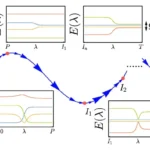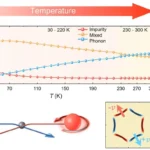Key Points
- University of Glasgow researchers developed a radar-based contactless heart monitoring system with high accuracy.
- The system achieved 99% accuracy, closely matching ECG readings at different heart rate intensities.
- The new radar method offers better precision by focusing on heart sounds rather than chest movements.
- Researchers aim to expand the technology for additional cardiovascular readings, like breathing rate and blood pressure.
A pioneering health monitoring system developed by researchers at the University of Glasgow offers a groundbreaking approach to tracking heart sounds without physical contact. The system uses radar waves to detect heartbeats with almost the same accuracy as traditional electrocardiogram (ECG) machines, potentially ushering in a new era of contactless medical monitoring.
This advanced radar-based technology differs significantly from earlier radar methods, which primarily tracked heart rate by measuring chest movements. By employing a 24GHz continuous-wave radar system and sophisticated signal processing techniques, the new method allows researchers to measure the sounds of the heart’s valves opening and closing, similar to how a stethoscope works.
During testing, researchers gathered heart sound and chest movement data from male and female volunteers under three different heartbeat intensities: a resting state (60-80 beats per minute), an anxiety state (100-130 bpm), and a transition state (80-130 bpm). They then compared these measurements to those from an ECG machine, the current standard for heart rate monitoring. Their new method demonstrated a near 99% accuracy rate, deviating from the ECG results by less than one beat per minute.
Notably, the system outperformed conventional chest-movement-based radar measurements, which sometimes differed from ECG readings by as much as 50 beats per minute, depending on heart rate intensity. This breakthrough demonstrates the superior precision of heart sound-based radar monitoring.
Professor Qammer H. Abbasi, co-head of the University of Glasgow’s Communications, Sensing, and Imaging Hub, emphasized the potential impact of the new technology. He noted that non-invasive monitoring could aid in infection control and provide clinicians with 24/7 tracking capabilities without the discomfort of wearable sensors. The system is also privacy-focused, gathering only vital signs rather than personal movement data.
Professor Muhammad Imran discussed ongoing work to expand the technology to monitor other cardiovascular signs, like breathing rate and blood pressure. Muhammad Farooq, a final-year Ph.D. candidate and co-author, underscored the potential for continuous heart monitoring in clinical settings, which could enhance heart disease diagnosis and critical patient care.
The research was conducted in collaboration with Coventry University and published in the IEEE Journal of Biomedical and Health Informatics. This innovative work could lead to highly accurate, contactless health monitoring in hospitals and homes.




